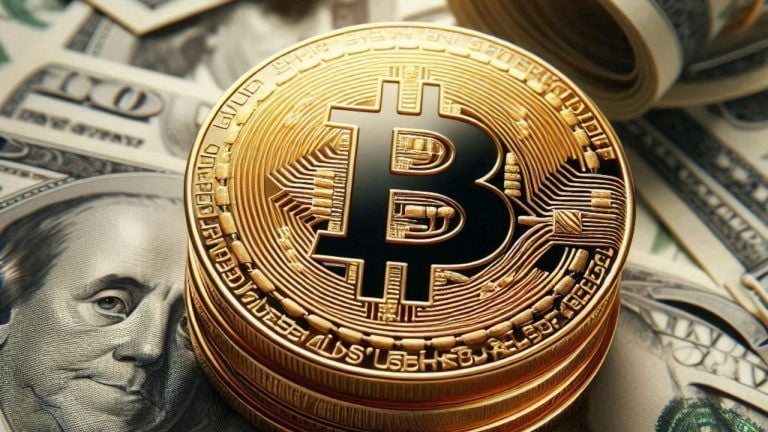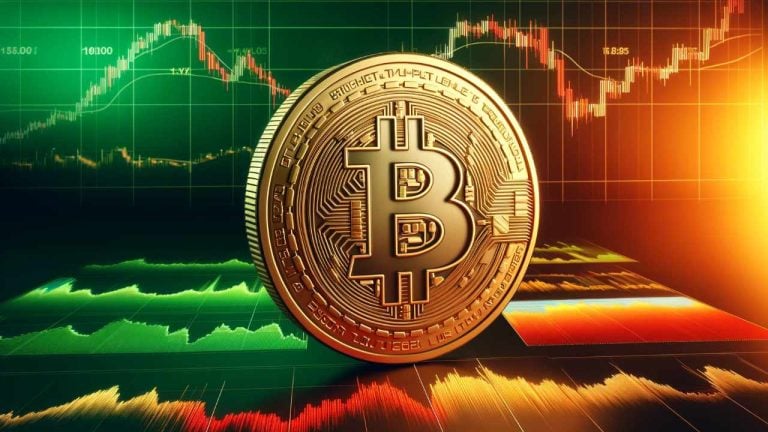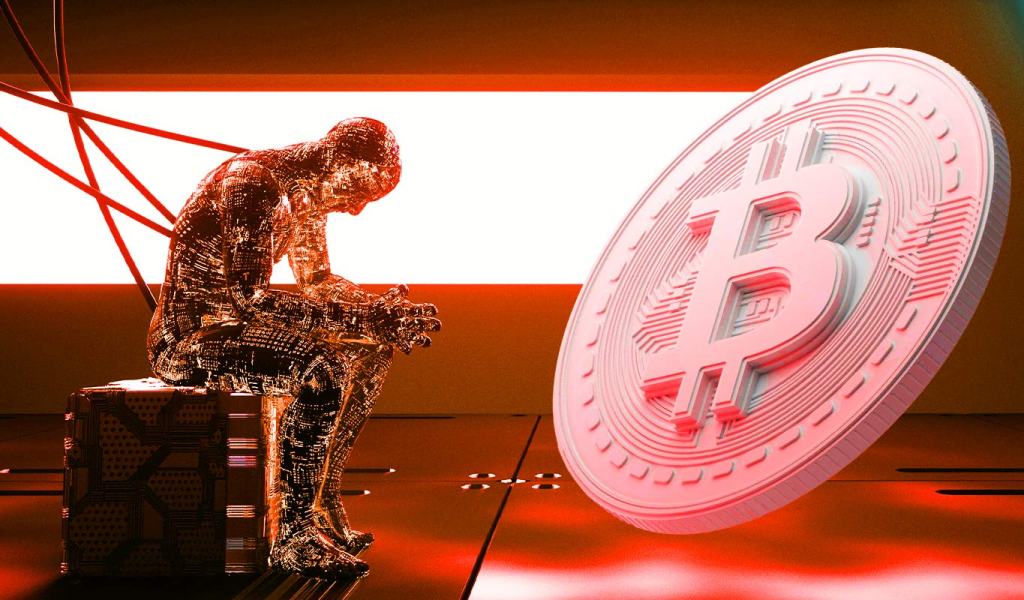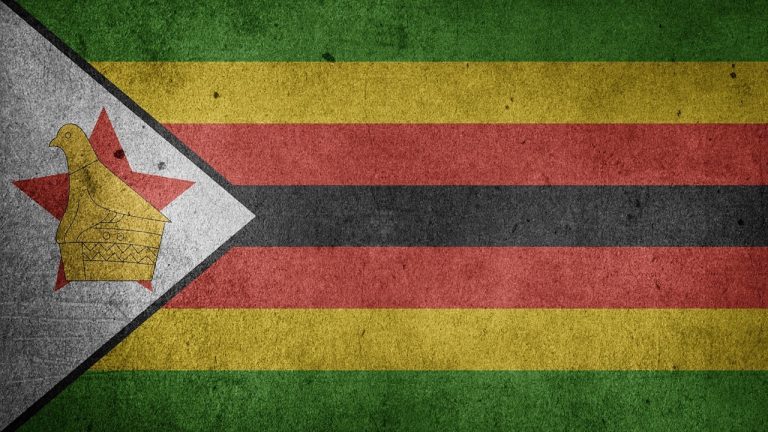 Ricardo Salinas, the third wealthiest man in Mexico, has recently doubled down on his proposal to use Bitcoin as a reserve asset. On social media, Salinas defended the role of Bitcoin as an inflation hedge, commenting on a post that presented inflation as a hidden tax on fiat money and advised his followers to purchase […]
Ricardo Salinas, the third wealthiest man in Mexico, has recently doubled down on his proposal to use Bitcoin as a reserve asset. On social media, Salinas defended the role of Bitcoin as an inflation hedge, commenting on a post that presented inflation as a hidden tax on fiat money and advised his followers to purchase […]

KPMG Canada partner Kunal Bhasin says rising debt and increasing inflation have likely attracted institutional investors into crypto.
Canada-based institutional investors significantly increased their crypto exposure last year compared to the last bull run, a survey from accounting firm KPMG has revealed.
Nearly 40% of institutional investors reported having direct or indirect exposure to crypto assets in 2023 — up from 31% in KPMG’s 2021 study, the company according to an April 24 report.
KPMG received 65 responses, 31 of which identified as institutional investors with most managing more than $500 million in assets, while the remaining 34 were financial services organizations.
 Skybridge Capital founder Anthony Scaramucci firmly believes that bitcoin will be both an inflation hedge and a store of value as the cryptocurrency scales. He emphasized that bitcoin is “still an early stage technical asset that will trade like other risk assets until it exceeds a billion users.” Scaramucci Doubles Down on Bitcoin as Inflation […]
Skybridge Capital founder Anthony Scaramucci firmly believes that bitcoin will be both an inflation hedge and a store of value as the cryptocurrency scales. He emphasized that bitcoin is “still an early stage technical asset that will trade like other risk assets until it exceeds a billion users.” Scaramucci Doubles Down on Bitcoin as Inflation […]

Many analysts are looking at how the cryptocurrency’s inflation rate will compare to gold’s after the halving, expected on April 19.
With the Bitcoin (BTC) halving expected to occur in the next four days, many analysts have suggested that the event could affect the cryptocurrency’s status as a store of value.
At the time of publication, roughly 630 blocks are left to mine before the Bitcoin halving occurs, meaning the monumental event in the crypto space will happen around April 19. In March, the BTC price reached an all-time high of more than $73,000 after the United States Securities and Exchange Commission approved the listing and trading of spot Bitcoin exchange-traded funds on exchanges in January, with the crypto asset continued to show volatility in its price.
Many crypto users and financial analysts claim that Bitcoin could be an effective hedge against inflation as countries’ central banks, including the U.S. Federal Reserve, devalue fiat currency by printing money. In contrast, there is a fixed supply of 21 million BTC, roughly 19.7 million of which have already been mined.

ARK Invest CEO Cathie Wood says Bitcoin (BTC) is effectively substituting gold as a store of value asset. In a new YouTube update, Wood says that she believes the crypto king is acting more as a risk-off asset and a “flight to quality” during times of economic uncertainty. “Last year, during the regional bank crisis […]
The post ARK Invest’s Cathie Wood Says ‘Substitution’ of Gold for Bitcoin (BTC) Now Underway appeared first on The Daily Hodl.

“It’s impossible for me to imagine some other internet store of value [will] leapfrog Bitcoin,” said Jan van Eck as he made his bullish case for BTC.
The CEO of investment management firm VanEck says he can’t see a world where Bitcoin (BTC) is overtaken as the leading store of value on the internet.
“I think it’s impossible for me to imagine some other internet store of value [will] leapfrog Bitcoin,” Jan van Eck said in a Dec. 16 interview with CNBC.
The CEO — $76.4 billion in assets under management — also crushed accusations that Bitcoin is in a “bubble,” — explaining that no asset has ever been in a bubble that continues to outperform itself every market cycle. He added:

The new all-time highs come despite Bitcoin still being down over 50% against its price peak of $69,000 against the U.S. dollar.
The price of Bitcoin (BTC) has notched new all-time highs against some of the world’s most inflationary fiat currencies.
Across 30 hours over Oct. 23 to 24, the cost of buying one Bitcoin has reached all time-highs when using the Argentine peso (ARS), Nigerian naira (NGN), Turkish lira (TRY), Laotian kip (LAK) and the Egyptian pound (EGT).
#Bitcoin just hit an all-time high in Argentina, Turkey and Nigeria. pic.twitter.com/sKRNUaBMX8
— Miles Deutscher (@milesdeutscher) October 26, 2023
However, it should be noted that the result is due to the ongoing devaluation of the currencies, exacerbated by Bitcoin’s recent 16% price increase.
NGN and TRY fell to their lowest points against the U.S. dollar on Oct. 24 and Oct.25, while ARS is only 0.85% off its all-time low (against the U.S. dollar).
According to the International Monetary Fund, the Venezuelan bolivar currently has the highest annual inflation rate at 360%, followed by Zimbabwean dollar (314%), Sudanese pound (256%) and ARS (122%).
The Turkish lira and Nigerian naira came in sixth and 15th with annual inflation rates of 51% and 25% respectively, IMF’s data shows.

Crypto observers have long seen digital assets, such as Bitcoin and stablecoins, as a hedge against rocketing inflation, the recent figures could bolster that narrative.
Nigeria, Turkey and Argentina boast the 2nd, 12th and 15th highest rates of cryptocurrency adoption in the world, according to a Sept. 12 report by Chainalysis.
With inflation at 99% in #Argentina, it’s 99% likely that the citizens of that beautiful country would benefit from #Bitcoin.
— Michael Saylor⚡️ (@saylor) February 15, 2023
However, the governments of these countries haven't always seen eye-to-eye with the cryptocurrency industry.
Nigeria is finally becoming more welcoming to cryptocurrencies after its central bank banned local banks from providing services to cryptocurrency exchanges in Feb. 2021.
Progress was made in December 2022 when Nigeria announced its intention to pass a bill recognizing cryptocurrencies as “capital for investment” — citing the need to keep up with “global practices” as one of the main reasons behind its change in stance.
And while Turkey is home to some of the most crypto-curious people, its central bank banned cryptocurrency payments for goods and services in April 2021. It has also working on a central bank digital currency (CBDC) to digitalize the Turkish lira over the last few years.
#Bitcoin fixes this
— Gülben Gözü (@gulbengozu) August 28, 2023
I'm back in my beautiful country, Turkey, after 6 months. Shocked to witness the same goods costing 3–4 times more already. Rents, food, public transport, and more costs skyrocket regularly. High inflation's devastation is real and alarming. pic.twitter.com/X4N4Axuh1n
Meanwhile, Argentina’s inflation crisis could be influenced by the outcome of its presidential election in November, with presidential candidate Javier Milei set to face competitor Sergi Massa in a final run-off vote on Nov. 19.
Related: Turkey to use blockchain-based digital identity for online public services
Massa, who currently serves as the country’s minister of economy, wants Argentina to launch a central bank digital currency (CBDC) “as soon as possible” as a means to “solve” the country’s long-lasting inflation crisis.
Argentina's present provides a glimpse into America's future, where the central bank raised interest rates 15 percentage points to 133% on Oct. 12. But with #inflation running at 138% and budget deficits and debt rising, the rate hikes will have no effect on reducing inflation.
— Peter Schiff (@PeterSchiff) October 26, 2023
He has also voiced an intention to keep the U.S. dollar away from Argentinians, explaining that Argentinians should instead be “patriots” and defend the Argentine Peso.
Milei on the other hand, wants the U.S dollar to be adopted in addition to abolishing Argentina’s central bank.
Magazine: Unstablecoins: Depegging, bank runs and other risks loom
 The International Monetary Fund has urged Zimbabwean authorities to weigh the benefits versus risks of issuing a gold-backed digital currency. Instead of using gold-backed digital currency to limit the demand for the greenback, the global lender said monetary authorities should consider liberalizing the foreign exchange market. Risks to Macroeconomic and Financial Stability The International Monetary […]
The International Monetary Fund has urged Zimbabwean authorities to weigh the benefits versus risks of issuing a gold-backed digital currency. Instead of using gold-backed digital currency to limit the demand for the greenback, the global lender said monetary authorities should consider liberalizing the foreign exchange market. Risks to Macroeconomic and Financial Stability The International Monetary […] The Reserve Bank of Zimbabwe (RBZ) has said it will start issuing gold-backed digital tokens on May 8. The first phase of the launch will see the digital tokens being issued for “investment purposes with a vesting period of 180 days.” The RBZ also revealed that the gold-backed digital tokens “would be used both as […]
The Reserve Bank of Zimbabwe (RBZ) has said it will start issuing gold-backed digital tokens on May 8. The first phase of the launch will see the digital tokens being issued for “investment purposes with a vesting period of 180 days.” The RBZ also revealed that the gold-backed digital tokens “would be used both as […] It’s been more than 100 days since the end of 2022, and the price of bitcoin has risen more than 80% since then. Over the past 30 days, bitcoin has increased by more than 45% against the U.S. dollar. Despite its recovery this year, after a long crypto winter in the previous year, the Bitcoin […]
It’s been more than 100 days since the end of 2022, and the price of bitcoin has risen more than 80% since then. Over the past 30 days, bitcoin has increased by more than 45% against the U.S. dollar. Despite its recovery this year, after a long crypto winter in the previous year, the Bitcoin […]